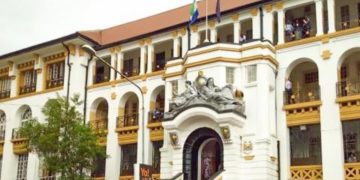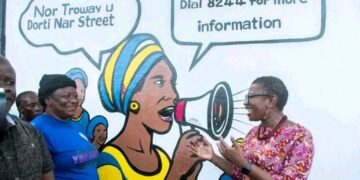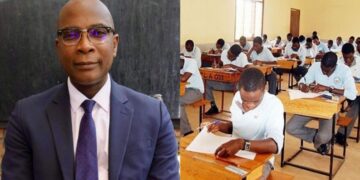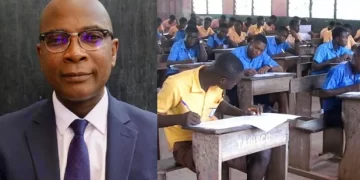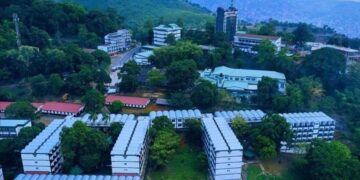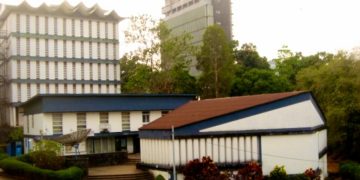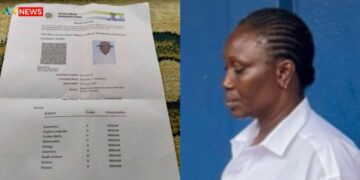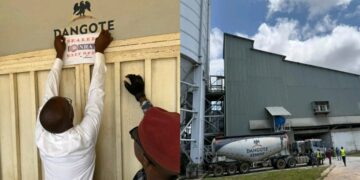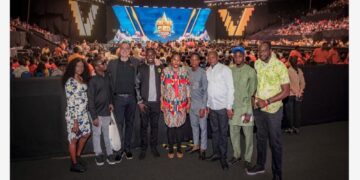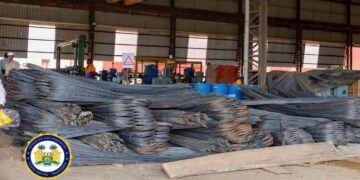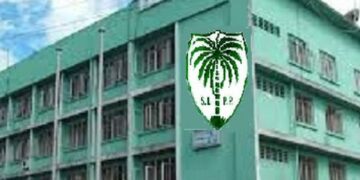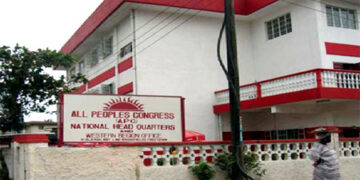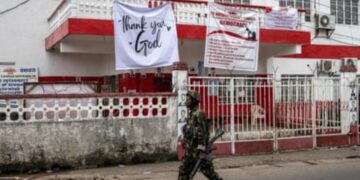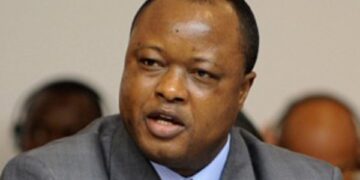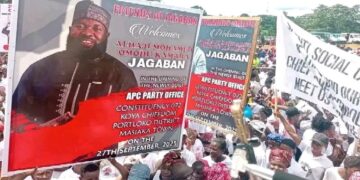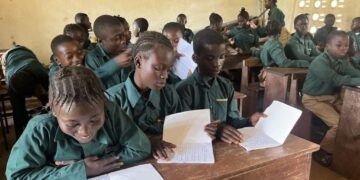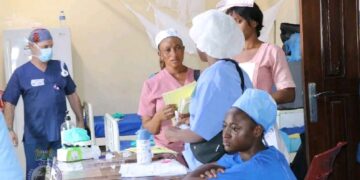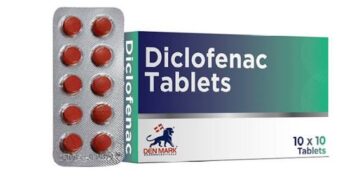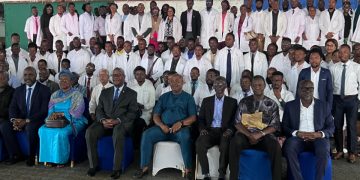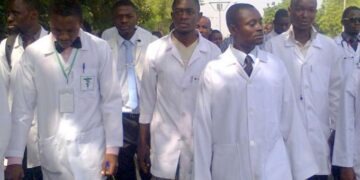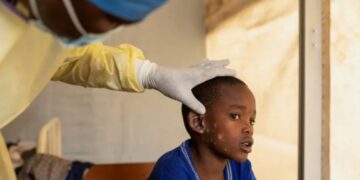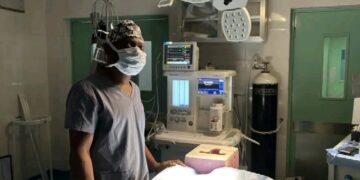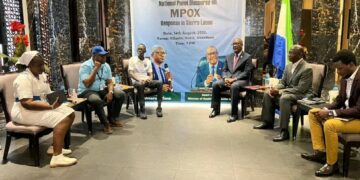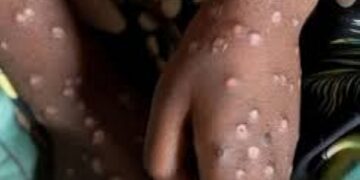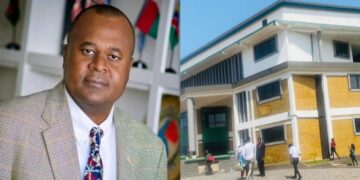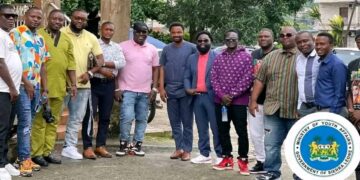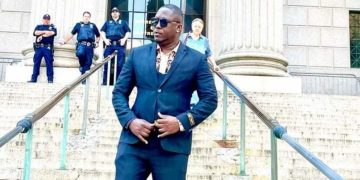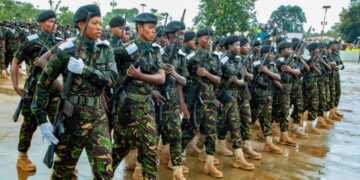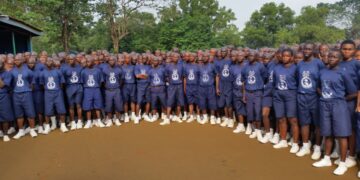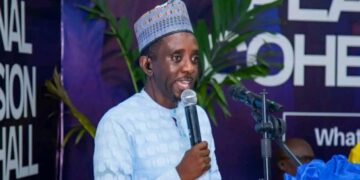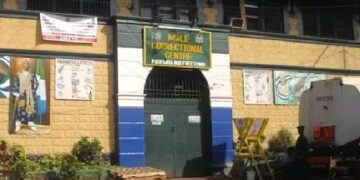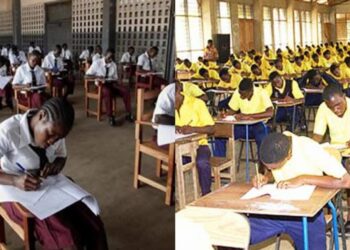Luanda, Angola – November 23, 2025: In a heartfelt display of diaspora solidarity, His Excellency President Dr. Julius Maada Bio, President of Sierra Leone and current Chair of the Economic Community of West African States (ECOWAS) Authority of Heads of State and Government, was met with an exuberant crowd of hundreds of Sierra Leonean expatriates upon his arrival at Dr. António Agostinho Neto International Airport here today.
The emotional reception, marked by waving national flags, spirited songs, and resounding chants of support, underscored the deep connection between Bio and his compatriots abroad, many of whom credited his visionary leadership for Sierra Leone’s strides in education, healthcare, and regional stability.
President Bio, who assumed the ECOWAS chairmanship in June 2025—making history as the first Sierra Leonean leader to hold the position—was formally welcomed by Angola’s Minister of External Relations, Mr. Tete António, and a delegation of senior government officials.
“This overwhelming turnout reaffirms the unbreakable bond we share as a people, no matter the distance,” Bio remarked to reporters, highlighting the diaspora’s role in Sierra Leone’s development agenda. The gathering not only celebrated Bio’s recent diplomatic triumphs—including his recent call for a G20-Africa compact on critical minerals at the G20 Summit in Johannesburg earlier this week—but also amplified the buzz surrounding the continent’s premier bilateral forum.
Bio’s visit sets the stage for the Seventh European Union-African Union (EU-AU) Summit, scheduled for November 24-25 in Luanda, which coincides with the 25th anniversary of the landmark EU-AU partnership established in 2000.
Co-chaired by Angolan President João Lourenço, in his capacity as the African Union’s rotating chair, and European Council President António Costa, the two-day event is expected to draw nearly 80 heads of state and government from both continents, alongside ministers, business leaders, and civil society representatives. Under the theme “Promoting Peace and Prosperity through Effective Multilateralism,” the summit builds directly on the momentum from the Third AU-EU Ministerial Meeting in Brussels in May 2025, where officials recommitted to a partnership grounded in shared values, mutual interests, and collective goals for sustainable development and stability.
Preparations reached a fever pitch today with a Senior Officials Meeting, where AU and EU delegates reviewed progress since the sixth summit in 2022 and finalized a draft joint declaration.
Key discussions will center on bolstering cooperation in critical domains: peace and security, democratic governance, migration management, multilateral reforms, and sustainable economic growth. With Africa holding 30% of the world’s mineral reserves—essential for the global green transition—leaders are poised to advance investments in infrastructure, innovation, and climate resilience, including flagship projects like Angola’s Lobito Corridor railway, which aims to connect mineral-rich regions to Atlantic ports.
A poignant highlight this year is the inclusion of reparations for colonial legacies and the transatlantic slave trade, aligning with the African Union’s declaration of 2025 as the “Year of Reparations: Justice for Africans and People of African Descent.” Advocacy groups and youth forums preceding the summit have pushed for concrete commitments, framing reparations not just as historical reckoning but as a foundation for equitable trade and investment flows.
“This is a moment to shift from aid to true partnership,” noted Moussa Faki Mahamat, AU Commission Chairperson, in a pre-summit address.
Preceding events have already injected fresh energy into the dialogue. The AU-EU Youth and Civil Society Forum (November 20-21) united over 200 young innovators from both continents to craft recommendations on youth employment, digital innovation, and social inclusion—outcomes set to influence summit decisions. Meanwhile, the concurrent AU-EU Business Forum (November 24-25) will spotlight private-sector opportunities, with the EU pledging to maintain its role as Africa’s largest trading partner and donor, channeling €600 million through the European Peace Facility (2022-2025) for AU-led peacekeeping and governance initiatives.
As ECOWAS Chair, President Bio arrives with a robust mandate to amplify West Africa’s voice. In recent months, he has spearheaded initiatives like the ECOWAS-UN-AU Compact for Peace and Resilience in the Sahel, unveiled at the UN Security Council in November, to counter terrorism and foster regional stability.
At the G20 in Johannesburg on November 22, Bio urged a “G20-Africa Compact” on critical minerals, emphasizing fair value addition and debt relief to curb the continent’s $1.1 trillion external debt burden. His presence in Luanda is expected to bridge ECOWAS priorities, such as food security integration and trade liberalization under the ECOWAS Trade Liberalisation Scheme—with broader AU-EU goals, particularly in addressing migration root causes and enhancing early-warning systems like ECOWARN.
The summit unfolds against a backdrop of geopolitical flux, with Angola deftly balancing ties between the EU, US (via President Biden’s recent Lobito push), and China. Analysts view it as a litmus test for multilateralism in a fragmented world, where Africa seeks to leverage its demographic dividend—1.4 billion people, projected to double by 2050—for mutual prosperity.
As the sun set over Luanda’s skyline, the echoes of Sierra Leonean cheers lingered, a fitting prelude to what promises to be a transformative gathering. Leaders are slated to adopt a forward-looking joint declaration by summit close, reaffirming commitments to tackle shared challenges from climate shocks to inequality. For Bio and his peers, it’s not just diplomacy, it’s a blueprint for an interconnected future.

